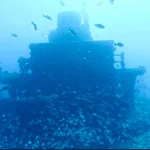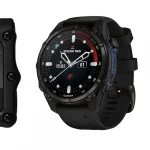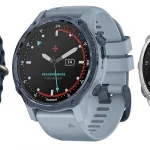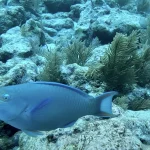The Importance of Local Expertise in Dive Guiding
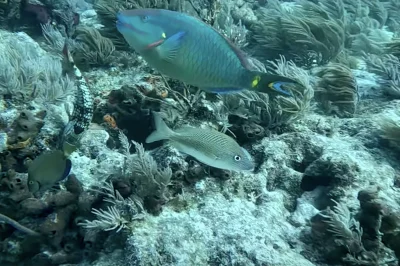
Table of Contents
- The Importance of Local Expertise in Dive Guiding
- Dispelling Myths: Are All Dives the Same?
- Common Mistakes in Choosing a Dive Guide and How to Avoid Them
- The Future of Dive Training: What Experienced Guides Bring to the Table
- Mastery Through Numbers: The Statistical Edge of Experienced Dive Guides
- Planning the Perfect Dive: Why 500+ Dives Set Our Guides Apart
- Experience Versus Novice: A Statistical Dive Guide Analysis
- Evolving Dive Practices: Insights from Experienced Divers
Introduction
For scuba divers aiming to explore the vibrant waters of Key Largo, understanding the local dive guide certification requirements is essential. Our professionals have clocked in a minimum of 500 dives on local sites, ensuring that they not only master the locale but also enhance your diving experience to its fullest potential. Let’s dive into why this extensive experience matters and how it benefits your underwater adventures.
The Importance of Local Expertise in Dive Guiding
Dispelling Myths: Are All Dives the Same?
Diving is often clouded by misconceptions that can impact both safety perception and diver readiness, especially in unique local sites like those in Key Largo. Addressing these myths helps divers make informed decisions.
One common myth is that scuba diving is inherently dangerous. In reality, with proper training, adherence to safety protocols, and well-maintained equipment, diving is as safe as many other recreational activities. Diving-related injuries are statistically lower than those from sports like bowling or volleyball. Proper preparation helps avoid issues like dehydration, seasickness, or sunburn, often mistaken for diving hazards.
Another misconception is that diving demands expert swimming skills. While basic swimming ability is necessary, scuba diving emphasises controlled buoyancy and comfort in water more than speed or endurance, making it accessible to a broader audience.
Fear of sharks is also prevalent, but shark attacks on divers are exceedingly rare. Sharks usually avoid human contact. This myth causes unnecessary anxiety, whereas understanding marine behaviour leads to safer dives.
Not all dives are the same, especially regarding depth. Some believe deeper dives are more exciting, but they involve increased pressure, reduced bottom time, and greater air consumption, requiring advanced skills. Shallow reefs and wrecks in Key Largo offer rich biodiversity without added risks.
Another belief is that diving safety relies solely on one’s buddy. While diving with a buddy is crucial, every diver is ultimately responsible for their own safety, including navigation, air management, and situational awareness. Proper training equips divers to handle unexpected situations independently.
Lastly, many think equipment failures are the main cause of incidents. Most arise from human factors like panic or procedural errors, not equipment failure. Modern gear aids safety but cannot replace following decompression rules and composure.
Understanding these nuances helps divers appreciate Key Largo’s unique diving nature. Not all dives are the same, and success depends on preparation, respect for local conditions, and debunking myths that can compromise safety.
Dispelling Myths: Are All Dives the Same?
Common Mistakes in Choosing a Dive Guide and How to Avoid Them
Choosing the right dive guide is critical for safety and enjoyment when planning dives in Key Largo. However, some mistakes can undermine dive trips. Recognising these pitfalls can help make smarter choices.
Assuming Dives Are Automatically Unguided
A frequent error is assuming dives are unguided unless a guide is explicitly requested. In reality, many operators enforce strict guided dive policies that can shorten bottom times to 20-30 minutes instead of the anticipated 45-60 minutes. This affects planning, air consumption, and satisfaction.
How to avoid: Before booking, ask the operator about guided or self-guided dives and clarify how dive times and routes are controlled. Choose operators offering flexible guiding styles aligned with your preferences to improve satisfaction and safety standards.
Skipping a Guide on Advanced or Complex Sites
Key Largo offers sites like the USS Spiegel Grove demanding skill and local knowledge. Attempting these dives without a qualified guide can result in navigation errors, rapid ascents, or buoyancy challenges, even for certified Advanced Open Water divers.
How to avoid: Hire an experienced local divemaster for complex or deep dives to assist with weighting, navigation, and emergency response, enhancing safety and ensuring key sights aren’t missed.
Ignoring Operator Restrictions and Dive Times
Some shops impose strict limits on dive duration for safety and operational protocols. Not researching these policies can lead to disappointment and rushed dives.
How to avoid: Review dive shop policies on dive times and gas planning. Confirm their schedules and limits fit your experience level and goals before committing.
Overlooking Local Expertise on Conditions and Gear
Key Largo’s variable conditions can tire even fit divers. A mistake is not leveraging local advice on managing currents, reef topography, or adjusting weights for saltwater and wetsuit thickness. Borrowing unfamiliar gear can worsen buoyancy problems.
How to avoid: Follow your divemaster’s advice closely regarding current management and weighting. Dive with your own well-fitted gear to maintain confidence and control underwater.
Dismissing Safety Protocols
Ignoring depth limits, bottom times, or making rapid ascents risks decompression sickness and barotrauma. Overconfidence or underestimating conditions often leads to compromised safety.
How to avoid: Adhere to your guide’s safety instructions, plan ascents with safety stops, and monitor bottom time with precision. Reliable guides prioritise these protocols to protect your health.
Summary: Make Smarter Dive Guide Choices
- Confirm guiding policies before booking to avoid surprises on dive style and time limits.
- Hire guides for advanced sites or if you lack local site experience.
- Research operator rules to align dive plans with gas consumption and no-decompression limits.
- Trust local expertise on currents, reef navigation, and weighting adjustments.
- Prioritise safety protocols to reduce risks on every dive.
By understanding and avoiding these common mistakes, divers can fully enjoy Key Largo’s spectacular underwater world with confidence and safety.
Common Mistakes in Choosing a Dive Guide and How to Avoid Them
Emerging Trends in Dive Training and the Indispensable Role of Local Expertise
As dive training progresses into 2025, trends like technology, environmental awareness, and inclusion highlight the vital value of experienced local guides, recognising them as guardians and ambassadors of their underwater environments.
- Environmental Education and Conservation Integration
Modern dive training embeds marine conservation education. Guides gain knowledge on identifying local species, understanding ecosystems, and adopting reef-friendly practices essential for areas like Key Largo, where preserving coral reefs is crucial. Experienced guides reinforce these practices during dives, protecting treasured sites. - Digital Learning Platforms Tailored to Local Conditions
Digital certification platforms allow divers and guides to access training theory and practice remotely, complementing hands-on local experience. Guides use technology to update on local conditions like currents, enhancing safety and tailoring dive experiences to Key Largo’s diverse landscapes. - Emphasis on Safety Through Direct Supervision and Contextual Adaptation
Effective training mandates direct supervision, with local guides offering insights into natural hazards unique to their waters, ensuring safer, more enjoyable dives. - Diversity and Inclusion in Local Dive Communities
Promoting diversity in dive instruction, local guides encourage inclusion and community stewardship, enriching visitor experiences and supporting conservation efforts. - Local Partnerships Strengthen Sustainable Tourism
Dive operators collaborate with local businesses and organisations to create sustainable dive experiences, linking dives with conservation projects. Guides knowledgeable in ecology and culture elevate experiences appealing to eco-conscious divers. - Innovative Training Tools Enhance Local Expertise
Tools like virtual reality dive simulations and condition apps refine guide skills relevant to their environments, improving navigation, hazard recognition, and emergency preparedness in Key Largo’s waters.
Overall, these trends show how dive training’s future is inseparable from deep, localised knowledge. Guides with extensive experience bring unparalleled value, ensuring safety, environmental stewardship, and enriching divers’ connections to underwater worlds.
My Favorite Dive Computers
I have compared the 3 top diving computers for each category to help making the right choice easier:
The Future of Dive Training: What Experienced Guides Bring to the Table
Mastery Through Numbers: The Statistical Edge of Experienced Dive Guides
The benefits of choosing dive guides with substantial experience become clear when analysing safety and enjoyment statistics. Experience thresholds play a role in reducing risk and enhancing dive quality.
Data shows less than 2% of Americans trying scuba diving remain active, with about 3.1 million making one annual dive but only 1.2% sustaining continuous participation. High dropout rates of near 96% after initial try suggest that many divers face issues with confidence, safety, or enjoyment early. Most divers log fewer than 200 dives in a lifetime, highlighting how rare advanced experience is.
Experienced guides with hundreds of local dives understand specific conditions, topography, and wildlife behaviour in Key Largo, significantly reducing errors linked to diver mistakes, which comprise 85–90% of fatal incidents. Such problems often arise from overstepping training limits or ignoring safety protocols, scenarios less likely with seasoned guides.
Dive safety certifications benchmark qualifications by the number of dives and technical training. Guides with extensive dive hours serve as safety monitors and facilitators of enjoyment by tailoring dive plans to suit diver levels, reducing dropout rates.
The combination of deep local knowledge and experiential milestones provides guides with a statistical edge, enhancing safety and enjoyment, creating memorable and secure diving experiences in Key Largo.
Mastery Through Numbers: The Statistical Edge of Experienced Dive Guides
How Extensive Dive Numbers Elevate Dive Planning and Execution in Key Largo
When a guide boasts over 500 dives, especially within local waters, it signifies more than just time underwater — it expresses mastery of conditions, risk management, and adaptability benefiting dive planning and execution.
Intimate Knowledge of Local Dive Sites
With hundreds of dives, guides fluently understand Key Largo’s landscape. They know reef topography, marine life patterns, and how seasonal or tidal changes affect visibility and currents, tailoring dive routes to skills and interest to maximise safety and enjoyment.
Advanced Risk Assessment and Emergency Preparedness
Extensive experience hones a guide’s awareness, enabling early detection of conditions or diver stress. They expertly manage underwater emergencies, enhancing safety. Guides assess divers pre-dive, aligning plans with conditions and skills.
Flexible and Customized Dive Planning
Experienced guides adapt plans based on dynamics, weather shifts, or visibility changes, building contingencies into dives for thrilling, controlled experiences, whether exploring reefs or wrecks like the Spiegel Grove.
Clear Communication and Team Coordination
Experience refines communication skills through briefings and signals, fostering team coordination and engagement. Post-dive, seasoned guides debrief, enhancing future dives with feedback.
Essentially, 500+ local dives ensure guides are skilled at managing planning and executing dives in Key Largo, allowing divers to fully trust and enjoy their adventures.
Planning the Perfect Dive: Why 500+ Dives Set Our Guides Apart
Experience Versus Novice: A Statistical Dive Guide Analysis
Guides with extensive local experience outperform those with minimal local experience across performance and satisfaction metrics. The difference lies in site-specific knowledge and risk management capabilities, which novice guides cannot match without repeated exposure.
Performance Distinctions Include:
- Superior Site Navigation and Safety Management: Experienced guides possess understanding of Key Largo’s underwater topography, currents, and hazards. This enables crafting safer dive plans and confident responses, with divers giving high safety ratings compared to novice-led dives.
- Enhanced Dive Enjoyment and Educational Value: Experienced guides enrich dives with marine life knowledge and history, gaining high enjoyment feedback from divers appreciating hidden spots and tailored narratives.
- Adaptability and Customization: Reviews reveal experienced guides customise dives to skills and preferences, resulting in higher satisfaction, while novices often follow generic scripts, increasing stress.
Diver Feedback Contrasts:
| Criteria | Experienced Local Guides | Novice Guides |
|---|---|---|
| Dive Enjoyment | High ratings reflecting deep local knowledge and personalised attention | Lower scores due to limited site familiarity and less tailored experiences |
| Confidence & Safety | Strong positive feedback linked to effective risk anticipation and mitigation | Inconsistent confidence; risk underestimation in challenging conditions |
| Customization Ability | Flexible dive planning and real-time adaptation | Standardised approach, lower responsiveness to diver needs |
Challenges for novices include underestimating site difficulty or behaviours, with limited environmental management. Experienced guides foster sustainable business through positive results. For divers in Key Largo seeking safety and cultural dive immersion, guides with extensive local dives are the superior choice.
Experience Versus Novice: A Statistical Dive Guide Analysis
Evolving Dive Practices: Insights from Experienced Divers
Experienced divers drive improvements in practices and safety protocols. Their familiarity with environments like Key Largo’s ecosystems identifies enhancements novices may overlook.
Critical areas influenced include superior buoyancy control. Experienced divers significantly reduce reef contact, ensuring environmental preservation and safety. This ability minimises habitat damage and risk, a benchmark for eco-conscious diving techniques.
Veteran divers pioneer emerging technologies enhancing safety and efficiency. The integration of Remotely Operated Vehicles (ROVs) in missions demonstrates benefits like real-time monitoring and hazardous exploration. Underwater drones and electric propulsion improve mobility and awareness, refined through experienced feedback.
Their insights inform the evolution of training curricula. Experienced divers emphasise adaptability to changing conditions, building muscle memory for skills like regulator clearance or emergency ascents. Firsthand accounts guide instructors in tailoring programs to improve decision-making under stress.
Experienced divers enhance safety protocols by incorporating psychological dimensions, recognising individual risk and behaviour to reduce accidents from poor judgment.
Experienced divers catalyse technical mastery, environmental stewardship, and technological innovation, ensuring evolving practices enhance safety and sustainability, particularly in Key Largo’s sensitive waters.
Evolving Dive Practices: Insights from Experienced Divers
Why Our Professionals Are Required to Have a Minimum of 500 Dives on Local Sites
In Key Largo, deep local familiarity surpasses theoretical knowledge or general experience. Requiring dive professionals to have at least 500 dives on local waters sets a high standard benefiting safety, trip quality, and environmental care.
Mastering Site-Specific Conditions
Key Largo’s underwater landscape includes complex reefs, popular wrecks like the Spiegel Grove, and notorious variable currents. Logging hundreds of local dives ensures guides’ intimate knowledge of these conditions, allowing anticipation of risks and confidently leading groups. Local experience aids in reading natural clues like fish behaviour or water clarity changes essential for safety.
Elevating Dive Safety and Emergency Preparedness
Extensive local dives enhance guides’ emergency management skills specific to Key Largo sites. Responses to entanglement near reefs or navigating boat traffic are rehearsed, providing peace of mind in new environments.
Offering an Enriched and Personalized Diver Experience
Professionals with 500+ local dives expertly tailor plans, optimising routes to highlight biodiversity hotspots. Their nuanced understanding delivers memorable explorations instead of generic tours.
Championing Conservation and Sustainable Diving
Local guides act as stewards, practicing minimal-impact diving, educating guests, and coordinating conservation efforts. Passion for preserving unique habitats attracts divers worldwide.
Consistency and Professional Accountability
This rigorous minimum ensures a high standard, fostering trust and reliability. It aligns with dive organisation emphasis on experience for safety. The 500-dive threshold prioritises local mastery, indispensable in a diverse, sensitive destination like Key Largo.
This dive count commitment ensures excellence, safety, and enriched experiences, cementing Key Largo’s status as a premier dive destination for all skill levels.
Sources
- Dive Curacao – Common Scuba Diving Myths Debunked
- DiveBuddy App – Top 10 Common Scuba Diving Myths
- Business of Diving – Scuba Myths About Dangerous Sharks
- Florida Scuba Diving – Key Largo Beginner Dive Sites
- ScubaBoard – Key Largo Diving on Rainbow Reef Discussion
- Alex in Wanderland – The Dive Guide to the Florida Keys
- Business of Diving – Scuba Industry Trends & Strategic Analysis
- Dive Right In Scuba – Scuba Diving in 2025: A Wave of Change and Seriously Cool Tech

